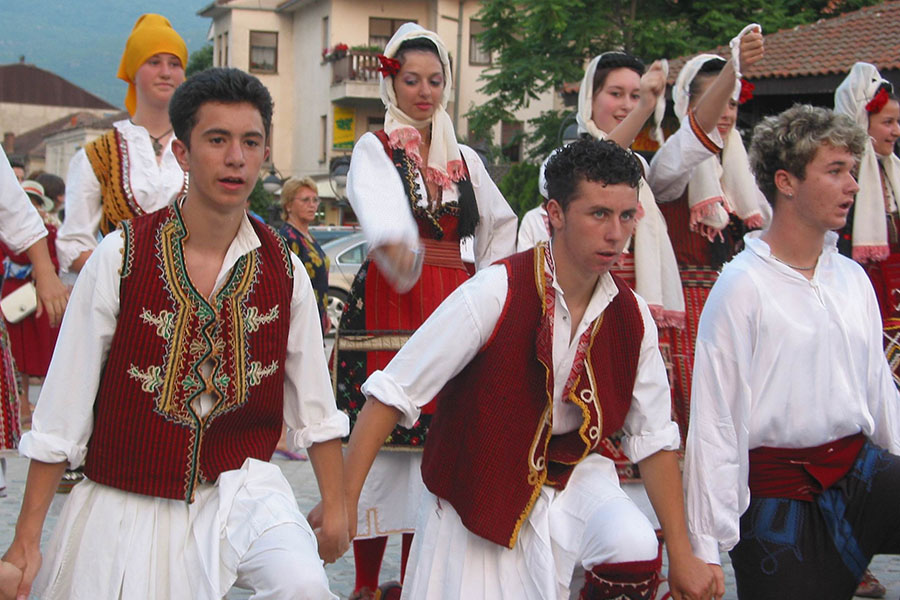Inspired by Ohrid

Despite a small permanent population of only about 40,000, the town of Ohrid in Macedonia attracts more than 2 million visitors annually, from every corner of the world. Surrounding Ohrid’s picturesque lake were 365 enchanting churches, which inspired the nickname, “Jerusalem of the Balkans.” In 1980, the small town was designated a UNESCO’s World Cultural Heritage site due to its culture, history, and natural landscape. The heavy flow of tourists for decades has invigorated its local economy.
I was lucky to get the chance to visit such an attraction. During my stay, I visited a small, well-preserved church with floor space of less than 20 square meters. Over 300 years ago, local residents built the church on the hillside with simple material, despite their meager incomes, and it remains under strong protection with its original look preserved. “How can such a humble structure be preserved so well for three centuries?” I asked my tour guide. “Through the power of faith,” he asserted. For generations, the locals have remained committed to protection and restoration, so applying for World Cultural Heritage status came naturally.
It reminded me of a small worship hall dedicated to the God of Land in my hometown. It was built between two townships, Xilin, where I was born, and Chayuan, 3.5 kilometers away, so that travelers could rest or get out of the rain. Its stone statues of the god and goddess of land attracted pilgrims on the 1st and 15th days of each lunar month.
I still recall taking a break there to escape rain or exhaustion during my walk to school in Chayuan. My mother and my aunt would take turns serving tea to passersby. My mother also made straw shoes and hung them in the hall for anyone with worn-out shoes.
I was so upset upon seeing that the hall had been destroyed during the “cultural revolution” (1966-1976) when I passed the site one day.
Next to the church there is a school that is considered one of the oldest in Europe, founded 1,200 years ago. “It accepts students of any religion in the world,” the tour guide explained. Despite the fact that the majority of the local residents were Catholic, many other religions, including Buddhism, openly practiced there.
I was reminded of a TV interview I did 20 years ago. “How can you ensure that your business survives for centuries?” the reporter asked. “Temples and churches can stand for centuries or millennia because they are inclusive,” I replied. My statement from the past seemed truer than ever when facing the 1,200-year-old school in Ohrid. Inclusiveness is the key to longevity.
My next stop in Ohrid was a music square established some 2,300 years ago. Despite its dilapidated appearance, I could still see vibrant traces of the brilliant culture and joy of people centuries ago. Today, the square serves as a gathering place for musicians from all over Europe during an annual summer music and theater festival.
My trip to the small town in Europe greatly inspired the winds of change in my life.
Chu Jiwang is president and founder of the Ningbo Ruyi Joint Stock Co., Ltd., a major Chinese logistics equipment manufacturer. More than just an entrepreneur, Chu is a recipient of the China Charity Award, the top philanthropic honor in the country. In each issue, he shares his business insights and inspirations gained from his life experience.